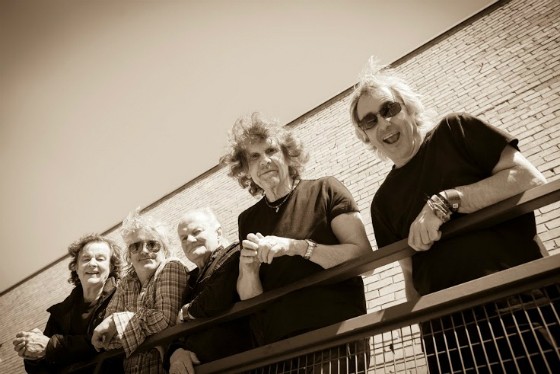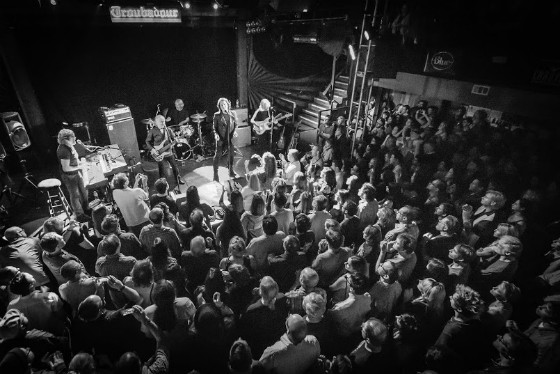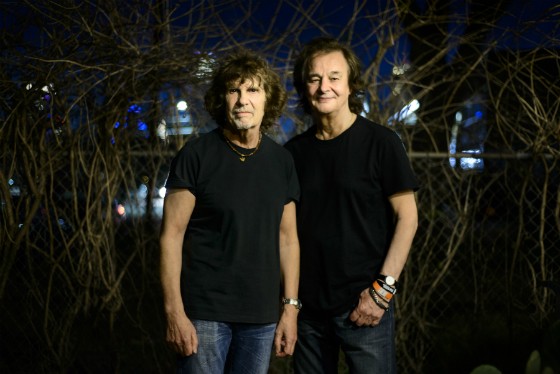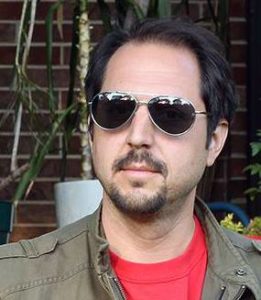
The Zombies are one of the most tragically underrated bands of the 60's. Fortunately, they are still kicking! Their originality earned them a mixed blessing. Whereas a few of their songs — most notably “Tell Her No,” “Time of the Season,” and “She's Not There” — performed well on the Billboard charts, their material did not typically cater to pop trends, and the original line-up disbanded in 1967; however, 50 years after they recorded their first record, their compositions are still appealing to new audiences and inspiring other musicians and filmmakers (such as Eminem and Quentin Tarantino). Keyboardist / founding member Rod Argent and singer Colin Blunstone have been performing as The Zombies, consistently, since 2001 and continue to record Argent's inspired works. On the occasion of their visit to Southern California (tomorrow at House of Blues in San Diego and Thursday at Santa Monica Pier), the Weekly caught up with Argent to talk about the unique musical life of The Zombies.
]
OC Weekly (Scott Feinblatt): Your first hit song, “She's Not There,” is not like anything else that was playing at the time. What were some of your inspirations?
Rod Argent: Well, it was just about the second song I ever wrote, and I think the sort of indirect inspirations came from all sorts of places. I was in love with rock 'n roll; I loved what The Beatles had been doing in the UK because they sort of really hit for two years before they made their huge impression in America. So, it was '62 onwards that they really became very big in the UK. But at the same time, I was in love with the Miles Davis band and a lot of jazz at the time. The band that he had with John Coltrane and Cannonball Adderley, and a little bit later Bill Evans, who I still think is the most wonderful pianist. So that was all going on in the background for me, and I was still listening to classical music, which was my first love when I was growing up. But the actual, direct inspiration came from…I thought, “Okay, I'm gonna write a song for the session (our first recording session),” and I started playing some of my old blues albums. And I played a John Lee Hooker album, and there was a track on it called “No One Told Me.” Now, I hasten to add nothing else in the lyrics bore any relevance to “She's Not There,” and neither did the melody or anything like that, but I just liked that as an opening phrase. I started to spin a song off those few words. I wanted it to have a very Blues-based melody because I loved all of the R&B things that were going on at the time; I loved Ray Charles, for instance. So, I wanted the melody to be fairly Bluesy; I wanted each verse to build to a conclusion that was sort of exciting, which is why you had the high sort of one note thing with changing chords underneath it, that Colin was singing, and we were all singing harmony. I wanted it to have harmony, and we always really featured that strongly in our band. I wanted the verses to have a broken drum rhythm, so I guess that was the whole thing, really. I never thought of it particularly having any jazz influences, but I guess looking back on it, the fact that there was an improvised piano break in the middle of it — electric piano break — was pretty unusual at the time, and did owe something to the jazz I'd been listening to. But, I wasn't thinking, consciously, in those terms at all.
[
In an article in the Daily Record, it says that your cousin, Jim Rodford, who (with his son Steve) is touring with you, is credited for helping form The Zombies. Why did he not play with your band originally?
[Jim's band] was the top band in the area — he's the guy that introduced me to rock 'n roll, when he played “Hound Dog,” by Elvis, when I was 11 years-old. He's about three or four years older than me, and he was already playing in one of the first groups in that part of the world, really, and I asked him to be in the band. He said, “Well, no, I won't be in the band, but I'll help you get started.” And he took us to our first rehearsal room, which is where his band used to rehearse; he loaned us all the band's gear, his band's gear (for our first rehearsal); he even taught Hugh Grundy the first drum rhythm, because Hugh had never played the bass drum in his life before that. So, he had a lot to do with it, actually, then years later, with me, he became a founding member of Argent, and then for 18 years was in The Kinks, on their biggest ever selling albums in the US. So, there's a lot of heritage there.
In addition to the influence that you've had on many other acts, several of your songs have been sampled by various groups. How does it feel to have your work incorporated into works by other musicians?
I love the sampling thing because it's very flattering that people from a different genre of music, from a different generation of music, can actually feel some relevance. Eminem did it on his album, last year, and used a huge amount of “Time of the Season” on his track — so much that he had to give me half the royalties on that song [laughing] — but, I love what he did, actually, because…it wasn't just a copy, obviously it wouldn't be, but he was very clever, because where I wrote “It's the time of the season for loving,” he wrote “There's no rhyme or no reason for nothing,” so it's almost pretty much a sound-alike, but he inverted the sentiment completely. And I thought that was pretty creative, actually. There have been quite a few more. I haven't liked everything; there have been a couple of really misogynistic rap things and some pretty violent [ones] which I don't like at all, but on the whole it's very flattering.[

You've got a new album coming out soon.
Well we have, I hope. I mean, we've started to write for it, and we're doing a song that was only finished a week ago — we're playing that on stage on our present tour. And I find it really exciting, actually, to think there's a path ahead and to be able to get energy from the creative side of things. That's very important to us, actually — along with still loving to play all the old stuff, and we discovered some of the old stuff. I mean, we put in a track that was the B-side to “She's Not There” that we suddenly realized, in its whole 50 year history, we've never played onstage [the B-side was “You Make Me Feel Good”]. So, we've started to do that on this tour as well! So, we get a lot of energy from doing that, but it's very important to us to write new stuff.
What are some of the biggest differences in writing in recording in 2014 as opposed to in 1964?
I don't think there is a difference in writing. You're obviously a different person and, you know, a lot of life has happened in between. But the process feels exactly the same to me, and we always write the same way; if we can take a musical idea and just get it to work, then that makes us happy. Under the idea that if we can make it work for ourselves or move ourselves to the slightest degree, then there's a chance that other people listening to it will feel some of the same emotion. That's the way we always used to write in the old days, so I don't see any real differences. There are some differences in the recording process. You can't go back and just pretend there haven't been any technological advances. If you try and do that, it becomes artificial. Even in the recording of things, I think that the actual criteria remains the same. It doesn't matter how you actually record the parts that you're doing; in the end they have to be performances and you have to — if you're laying down a solo or something, on top of a track which already exists, which you couldn't do in the old days because you only had four tracks when we started — you still have to do it as if it's the only chance you'll ever get to do it. You have to try and capture that energy of performance, and I think we try and live by that rule, too.

What are some of the advantages and disadvantages of not following musical trends?
That's a very good question because I think that, in the early part of our career, I think that commercially did us a disservice because when we wrote songs, as I've just described to you, we always tried to make things work — just make it work for ourselves — and not try and think in terms of “What's fashionable at the moment? How can we make this commercially acceptable?” or “How do we get to the hook in 30 seconds?” if you like. We never thought that way, and if you listen to “She's Not There,” it's constructed in a very strange way, really, but it just worked for us. But, because that made stuff sound pretty different to everything else that was around, I think that sometimes it meant that we didn't get on the radio very easily, but in the long term, I think it's meant two things: it's meant that stuff hasn't dated in a way that some of our contemporaries' stuff dated — not everybody, I know, but some of it — and the other thing is, I think it's still capable of reaching out and touching a whole younger generation now because, in a way, of the honesty in how it was written in the first place. It wasn't just being a slave to fashion. I believe that's one of the reasons why things have lasted a bit more and why [it] still reaches out and touches people. At most gigs that we do, there are a couple of young bands that come to see us, and there's usually a young component to the audience as well as obviously people of all ages and our age, as well, which is absolutely great, but we do tend to get more young people as a part of the audience than many people of our generation. It's a great band, and we go out there and try and do it 100% for real. And I think it's that honesty that reaches out and speaks to people.
See also
10 Punk Albums to Listen to Before You Die
10 Goriest Album Covers
10 Most Satanic Metal Bands
Follow Heard Mentality on Twitter and Facebook!


